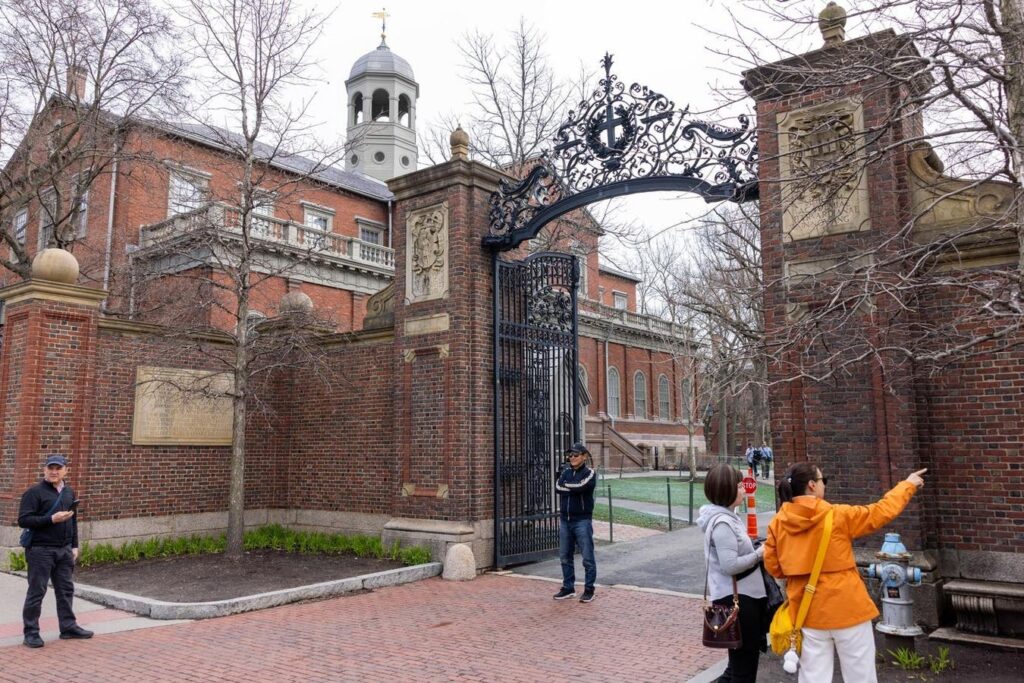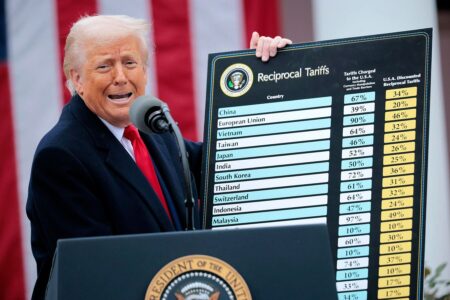President Trump’s multiple threats to revoke the tax-exempt status of organizations that disagree with him have deeply troubling implications for the credibility of the federal revenue system and for democracy broadly.
His highest profile threat was his request that the IRS revoke Harvard University’s tax-exempt status. But Harvard wasn’t the president’s only target. On April 17, he told reporters, “We’re looking at” a non-profit group called Citizens for Responsibility and Ethics in Washington (CREW) that has filed several lawsuits against his Administration.
And he separately warned that “Tax exempt status is a privilege, it’s really a privilege, and it’s been abused by a lot more than Harvard.”
I’ve written for years about the many problems with the way organizations use, and abuse, tax-exempt status. Big-time college athletic departments avoid tax on football and basketball profits. Major donors use certain tax-exempt organizations as a tool to hide millions of dollars in campaign contributions.
Tax-exempt status needs rethinking. But tax exemption is not a privilege to be given or taken by a president seeking to reward friends or punish perceived enemies.
The Backstory
It is a crime for the president or other top level administration officials to ask the IRS to act against specific taxpayers. And even the appearance of political pressure can taint a case. In 1973, a federal district court blocked an IRS effort to revoke an organization’s tax-exempt status merely because there was a “creation of a political atmosphere generated by the White House in the Internal Revenue Service.”
Yet, revoking tax-exempt status could have a profound financial impact on an organization, even if it ultimately is reversed by the courts. While the dispute dragged on, donors would be at best uncertain about whether they could deduct any charitable gifts.
The Administration move has an important backstory. A decade ago, the IRS set off a firestorm with a clumsy attempt to end the tax-exempt status of many political advocacy groups. Conservatives claimed the effort targeted only conservative groups, though an independent review found organizations across the political spectrum were targeted and few ever were denied tax-exempt status.
But there was another crucial difference between that episode and today: The 2011 effort was generated by mid-level IRS staffers, not by the President of the United States.
Three Disputes
Trump seems to have three disputes with Harvard: It encouraged diversity, equity, and inclusion (DEI) in hiring, admissions, and curricula; It was slow to halt anti-Israel protests that morphed into what many saw as anti-Semitism; and it rejected White House demands that the Trump Administration oversee specific changes in the university’s academics and governance.
The move to revoke Harvard’s tax-exemption is part of a broader campaign against the school that includes ending $2.2 billion in government funding and its ability to enroll foreign students. Harvard has responded by suing the Administration.
A Legal Reach
If the IRS does try to revoke Harvard’s tax-exempt status, it could rely on two issues: that Harvard’s DEI initiatives violate public policy or that it illegally engaged in political activity.
Harvard is a 501(c)(3) charitable organization whose activities are constrained. Yet, experts in tax-exempt law say both potential allegations would be a reach.
The public policy argument could rely on a 1983 Supreme Court decision involving Bob Jones University. In that case, the IRS revoked the school’s tax-exempt status because it discriminated against Black applicants.
That violated established federal laws against racial discrimination. The Supreme Court’s 8-1 opinion said, “Government has a fundamental, overriding interest in eradicating racial discrimination in education.” The opinion noted that more than two decades of legislation, court rulings, and regulation all aimed to achieve that goal.
In contrast, while Harvard may not share Trump’s views on DEI, it would be hard for the IRS to make the case that its policies violate settled policy. “I don’t see how a position regarding DEI adopted since Trump’s inauguration can establish a fundamental public policy,” Ellen Aprill, Senior Scholar in Residence at the Lowell Milken Center for Philanthropy and Nonprofits and Professor Emerita at Loyola Law School, told me.
The claim that Harvard’s hiring and admissions policies and its response to campus protests amount to illegal political activity seems like even more of a stretch.
A case against CREW, also a 501(c)(3), raises different questions since it heavily engages in what seems like advocacy, though not prohibited lobbying or partisan political activity. But so do hundreds or even thousands of similar tax-exempts, whose activities are largely ignored by an understaffed IRS.
It might take years for the IRS to resolve these claims: The Bob Jones case dragged on for more than a decade. In the normal course of events, the IRS first would formally explain why it intended to revoke tax-exempt status, the organization would respond, and the agency would give the group the opportunity to settle, perhaps by remediating any impermissible activity. The tax-exempt could then appeal any decision in court.
But beyond any administrative challenges, Trump’s threats raise a far more profound question: Is tax-exempt status a favor to be doled out by a president to groups that agree with him, and taken from groups that do not?
Read the full article here
















